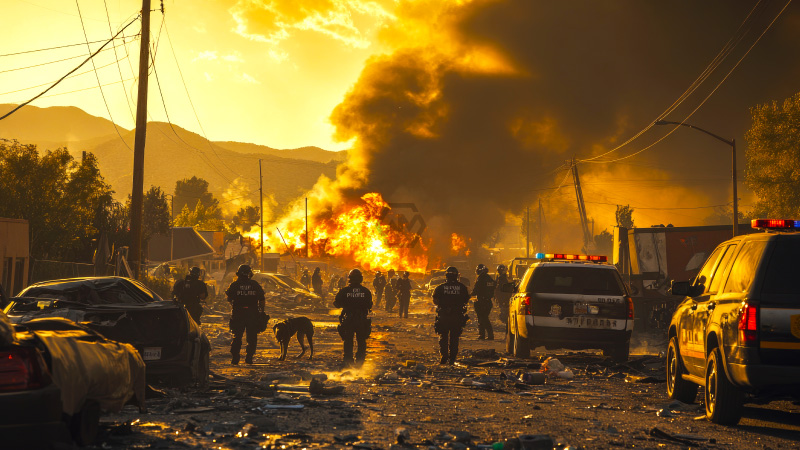- Airstrikes and Retaliation: Israel’s airstrikes targeted Hezbollah’s rocket launchers; Hezbollah retaliated with a large rocket barrage.
- Casualties and Damage: At least one death reported from Israeli strikes; significant damage to military and civilian infrastructure on both sides.
- Political and Regional Impact: The conflict risks broader regional instability and complicates ceasefire efforts in Gaza.
The recent escalation between Israel and Hezbollah has seen a significant military engagement, with Israel launching a major airstrike against Hezbollah targets in southern Lebanon.
This pre-emptive strike aimed to neutralize Hezbollah’s planned offensive, highlighting the high tension in the region. The Israeli government’s aggressive stance reflects its determination to secure its northern borders from potential threats.
Intensified Hostilities: Israel and Hezbollah Engage in Heavy Exchange of Fire
In retaliation, Hezbollah fired over 320 rockets and drones at Israeli military positions, marking one of the largest rocket barrages the group has executed. The rocket attacks have caused significant damage and prompted air raid sirens across northern Israel, disrupting daily life and affecting key infrastructure such as Ben-Gurion International Airport.
The latest hostilities come in the wake of Israel’s targeted killing of Hezbollah commander Fouad Shukur last month. This act of aggression by Israel has been a major catalyst for the renewed violence, as Hezbollah vowed revenge for the death of its leader. The situation remains highly volatile, with potential implications for broader regional stability.
Compounding the conflict’s complexity is the ongoing war in Gaza between Israel and Hamas. The escalation with Hezbollah adds another layer of tension to an already fraught situation, potentially complicating efforts to achieve a ceasefire and further destabilizing the Middle East.
As the conflict between Israel and Hezbollah continues to intensify, the potential for broader regional instability grows. The large-scale military actions and retaliations from both sides highlight the fragile nature of peace in the Middle East and underscore the urgent need for diplomatic efforts to de-escalate the situation.
“Whoever harms us – we harm him,” – Israeli Prime Minister Benjamin Netanyahu.



